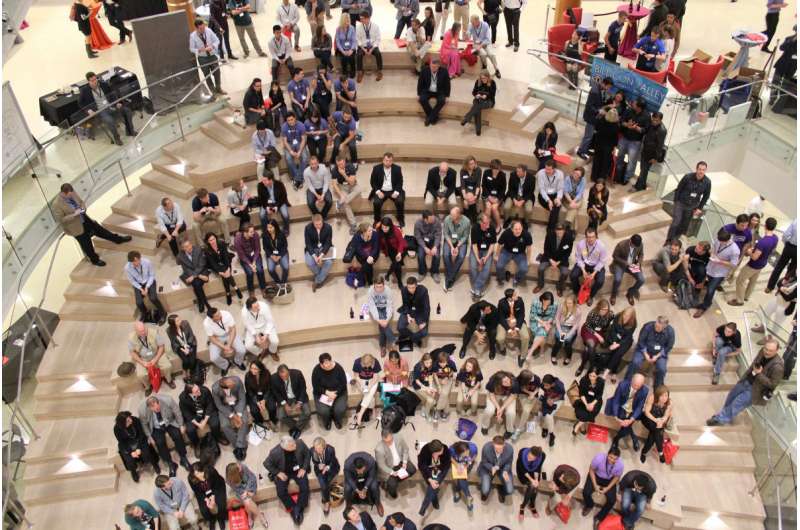At any point in life, people spend their time in 25 places

At any given time, people regularly return to a maximum of 25 places. This is the finding of a scientific study that reveals entirely new aspects of human behavior.
The study, titled "Evidence for a conserved quantity in human mobility' is published in Nature Human Behaviour is based on analyses of 40,000 people's mobile traces collected in four different datasets.
It is also the first of its kind to investigate people's mobility over time and study how their behavior changes.
Behind the project are Dr. Laura Alessandretti and Dr. Andrea Baronchelli, researchers in the Department of Mathematics at City, University of London, together with Professor Sune Lehmann from DTU Technical University of Denmark and the research team from Sony Mobile Communications.
"We first analysed the traces of about 1000 university students. The dataset showed that the students returned to a limited number of places, even though the places changed over time. I expected to see a difference in the behavior of students and a wide section of the population. But that was not the case. The result was the same when we scaled up the project to 40,000 people of different habits and gender from all over the world. It was not expected in advance. It came as a surprise," says Dr. Alessandretti.
Old places disappear
The study showed that people are constantly exploring new places. They move to a new home, find a new favorite restaurant, find a new bar, or start going to another gym, etc. However, the number of regularly visited places is constantly 25 in a given period. If a new place is added to the list, one of the places disappears.
The pattern is the same when the researchers divide the locations into categories based on how often and how long time they spend at the location.
"People are constantly balancing their curiosity and laziness. We want to explore new places but also want to exploit old ones that we like. Think of a restaurant or a gym. In doing so we adopt and abandon places all the time. We found that this dynamic yields an unexpected result: We visit a constant, fixed number of places—and it's not due to lack of time. We found evidence that this may be connected to other limits to our life, such as the number of active social interactions we can maintain in our life, but more research is in order to clarify this point," says Dr. Baronchelli
The study has connections with the findings of anthropologist Robin Dunbar, who demonstrated that there is a limit to how many friends we have. The work of Dr. Baronchelli and colleagues shows that those who have a tendency to visit many places are also likely to have many friends. The correlation between social behaviour and the number of locations has not been made this clearly before this research.
"Our research established a first formal connection between the study of human mobility and human social cognition. Clarifying this link will help us design better public spaces as well as better transportation systems. And ultimately facilitate the creation of more sustainable and healthy urban environment for all of us," Dr. Baronchelli adds.
More information: Laura Alessandretti et al. Evidence for a conserved quantity in human mobility, Nature Human Behaviour (2018). DOI: 10.1038/s41562-018-0364-x
Journal information: Nature Human Behaviour
Provided by City University London



















